Housing and employment are essential for the new beginnings of refugees in Serbia
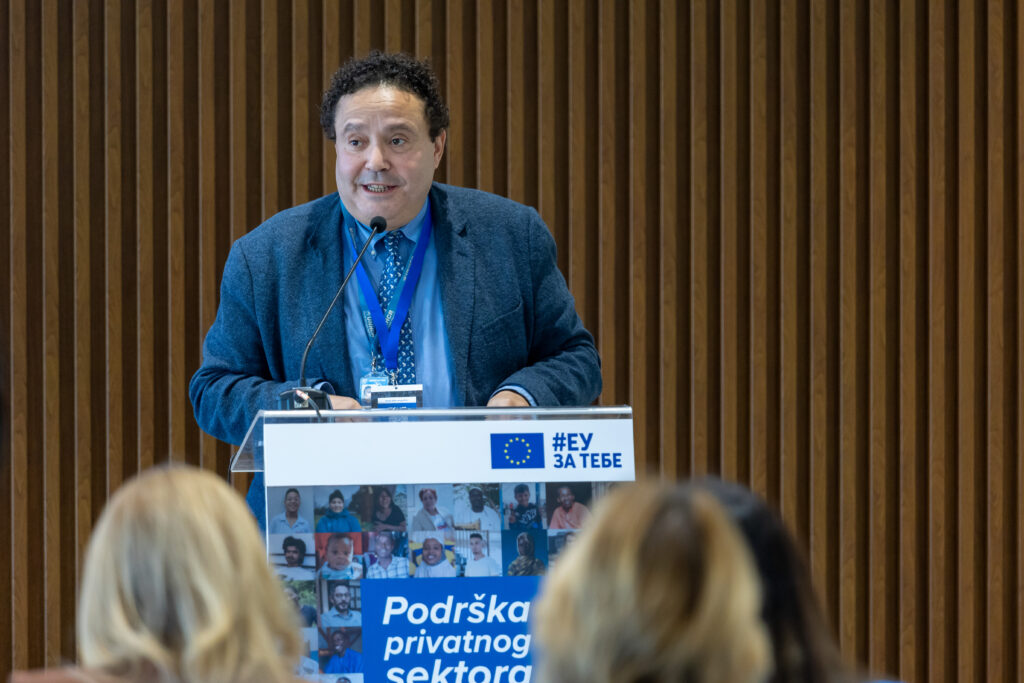 Refugees and asylum seekers in Serbia gave recommendations to the business community and other stakeholders at the conference “Private Sector Engagement—from Refugees’ Perspective” regarding possible support for their new beginnings in Serbia. The recommendations relate primarily to employment, training, entrepreneurship, and various types of assistance for particularly vulnerable refugees and children.
Refugees and asylum seekers in Serbia gave recommendations to the business community and other stakeholders at the conference “Private Sector Engagement—from Refugees’ Perspective” regarding possible support for their new beginnings in Serbia. The recommendations relate primarily to employment, training, entrepreneurship, and various types of assistance for particularly vulnerable refugees and children.
The conference was organised by the UN Refugee Agency (UNHCR) and IKEA Serbia, as part of the private sector network “For Refugees”, which has been providing assistance since last year to help forcibly displaced people integrate into society in Serbia and gain economic empowerment.
As the key need for a dignified life in Serbia, refugees identified private housing for the most vulnerable persons. At the same time, their second priority is the opportunity for professional development through training and courses. Employment is recognised as the third most important priority, while support for starting a business ranks fourth, and public communications and non-financial donations are fifth.
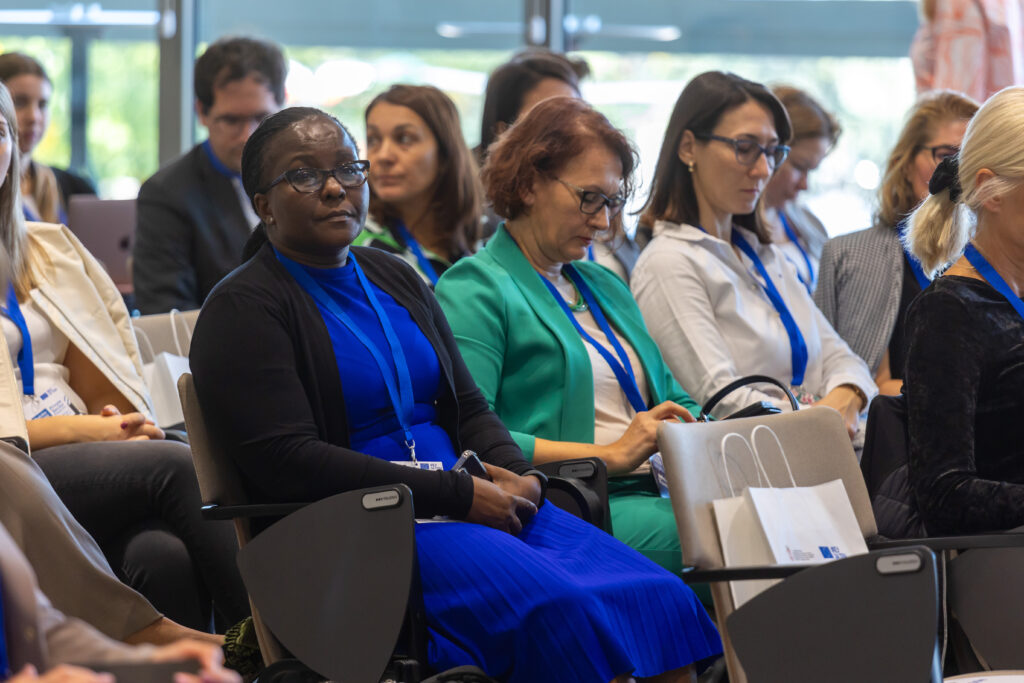 “I am deeply grateful to the members of the ‘For Refugees’ network and all other business actors willing to help forcibly displaced people integrate and live with dignity, recognising how much their experiences and knowledge can contribute to society. This is a win-win situation – refugees become more self-reliant and more involved in their economic and social lives. At the same time, companies benefit from both their business development and their contribution to achieving sustainable development goals. We invite business leaders to recognise the opportunity, learn more about the needs of this vulnerable community, and be there for the refugees,” said Soufiane Adjali, UNHCR Representative in Serbia.
“I am deeply grateful to the members of the ‘For Refugees’ network and all other business actors willing to help forcibly displaced people integrate and live with dignity, recognising how much their experiences and knowledge can contribute to society. This is a win-win situation – refugees become more self-reliant and more involved in their economic and social lives. At the same time, companies benefit from both their business development and their contribution to achieving sustainable development goals. We invite business leaders to recognise the opportunity, learn more about the needs of this vulnerable community, and be there for the refugees,” said Soufiane Adjali, UNHCR Representative in Serbia.
For the first time, refugees directly informed companies and institutions about their needs for a decent life in Serbia
In their recommendations, refugees praised employers who provide psychological support and flexible working arrangements for especially vulnerable employees and those who pay particular attention to preventing workplace discrimination. The most sought-after training and courses were identified in digital literacy, “soft skills,” and Serbian language learning.
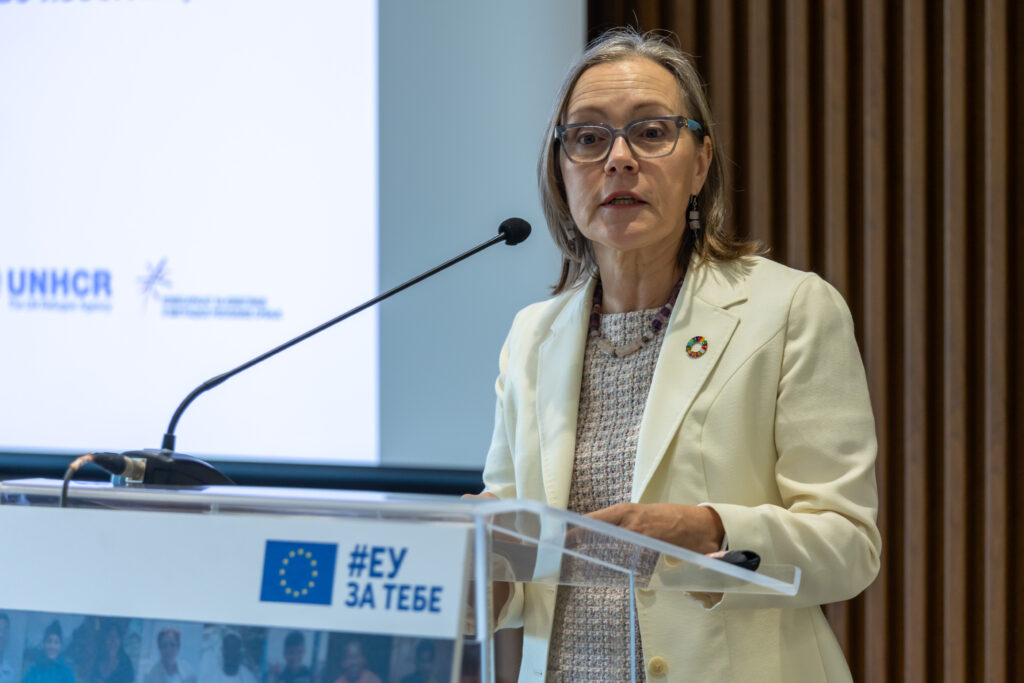 “Refugees bring rich experience and skills but face obstacles in new environments. This conference explores how the private sector can empower refugees, create jobs, and foster social cohesion. Direct collaboration between refugees, local self-governments, and the private sector is essential. The Commissariat for Refugees and Migration continuously informs refugees about labour needs, and the trainings and workshops we organise in cooperation with international organisations help refugees start new careers. This conference will bring constructive ideas and support to the business community in integrating refugees. Together, we can create a more inclusive society, and supporting refugee employment in the Republic of Serbia not only enriches our workforce but also contributes to building a community based on understanding, solidarity, and joint progress,” said Nataša Stanisavljević, Commissioner for Refugees and Migration of the Republic of Serbia.
“Refugees bring rich experience and skills but face obstacles in new environments. This conference explores how the private sector can empower refugees, create jobs, and foster social cohesion. Direct collaboration between refugees, local self-governments, and the private sector is essential. The Commissariat for Refugees and Migration continuously informs refugees about labour needs, and the trainings and workshops we organise in cooperation with international organisations help refugees start new careers. This conference will bring constructive ideas and support to the business community in integrating refugees. Together, we can create a more inclusive society, and supporting refugee employment in the Republic of Serbia not only enriches our workforce but also contributes to building a community based on understanding, solidarity, and joint progress,” said Nataša Stanisavljević, Commissioner for Refugees and Migration of the Republic of Serbia.
One of the refugees’ recommendations is that companies should be familiar with their documents in Serbia, which differ from those of citizens, as this would improve or enable access to payment accounts, telephone, internet, and TV services. Considering the increasing number of refugees starting their businesses, it was also noted that mentoring and educational support for business development would be of great value, as well as programs offering grants or loans, which are currently unavailable to them.
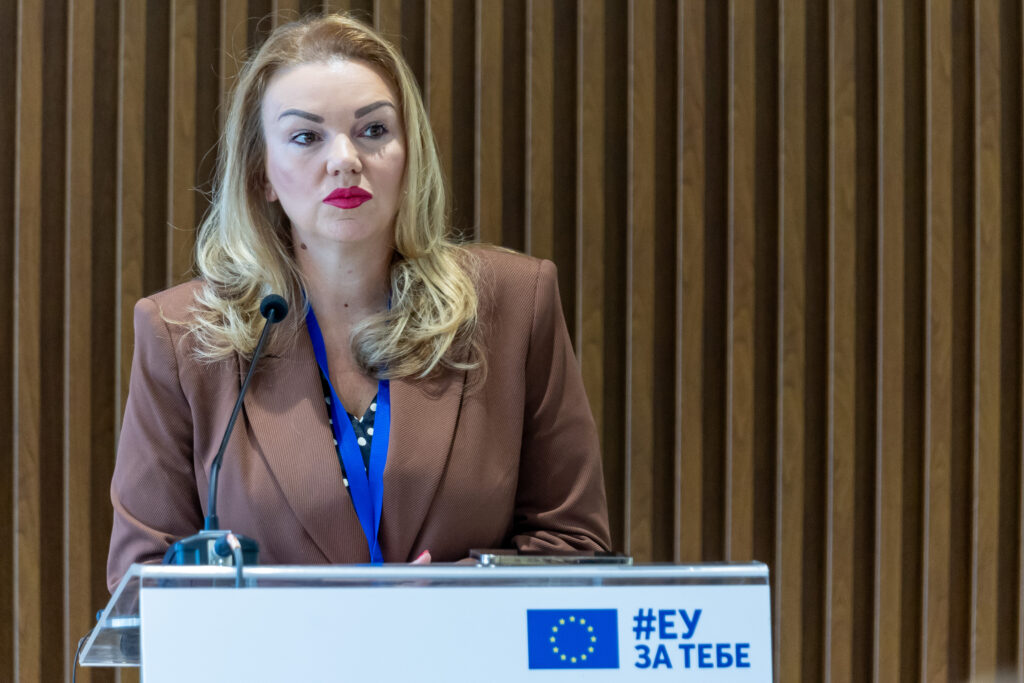 “As a values-based company, we have welcomed refugees into our workspace and continue to do so. Refugees are talented and motivated, bringing a global perspective that strengthens our business. Partnering with UNHCR to create the ‘ForRefugees’ network has proven that when we all work together, we all benefit. We urge other companies to join this effort—doing so isn’t just the right thing to do, it makes business sense,” said Otto van Daal, People and Culture Manager, IKEA South East Europe.
“As a values-based company, we have welcomed refugees into our workspace and continue to do so. Refugees are talented and motivated, bringing a global perspective that strengthens our business. Partnering with UNHCR to create the ‘ForRefugees’ network has proven that when we all work together, we all benefit. We urge other companies to join this effort—doing so isn’t just the right thing to do, it makes business sense,” said Otto van Daal, People and Culture Manager, IKEA South East Europe.
In Serbia, slightly more than a thousand forcibly displaced persons have received a specific type of protection. They mostly come from Ukraine, Libya, Syria and Afghanistan
Regarding recommendations to UNHCR and relevant institutions, refugees and asylum seekers emphasised the importance of comprehensive access to available jobs, training, and employee rights. They also suggested that relevant institutions should inform companies about refugees’ personal documents and legal status.
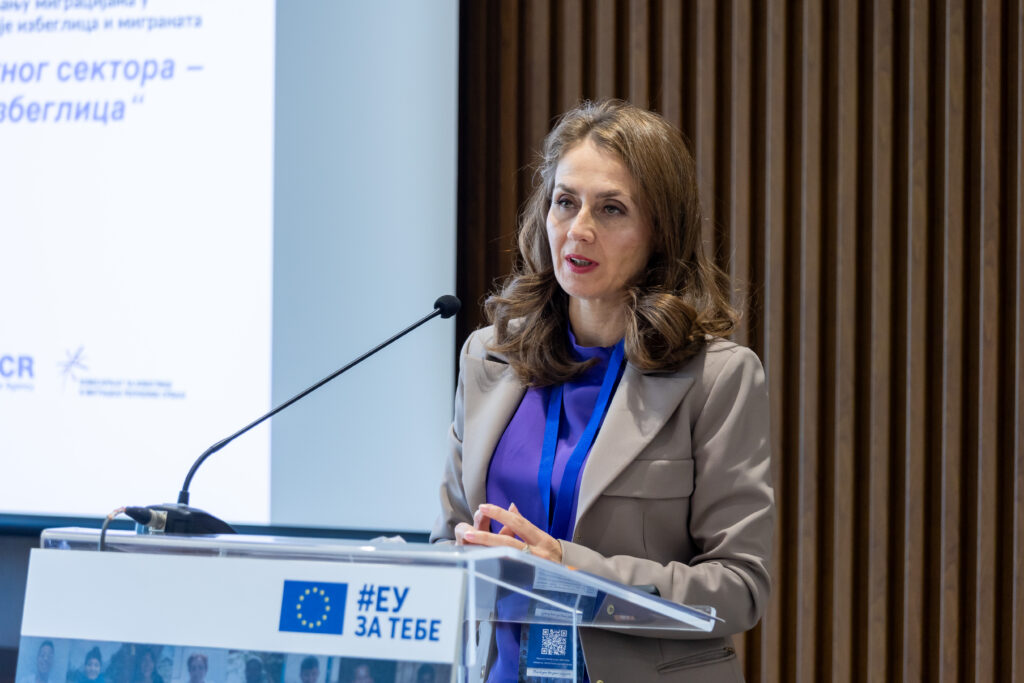 UNHCR and IKEA Serbia launched the “For Refugees” initiative to create a support network within the business community for those forced to flee their countries and rebuild their lives in Serbia. According to the data available to the UNHCR, slightly more than a thousand people have received asylum, subsidiary protection, or temporary protection in the Republic of Serbia.
UNHCR and IKEA Serbia launched the “For Refugees” initiative to create a support network within the business community for those forced to flee their countries and rebuild their lives in Serbia. According to the data available to the UNHCR, slightly more than a thousand people have received asylum, subsidiary protection, or temporary protection in the Republic of Serbia.
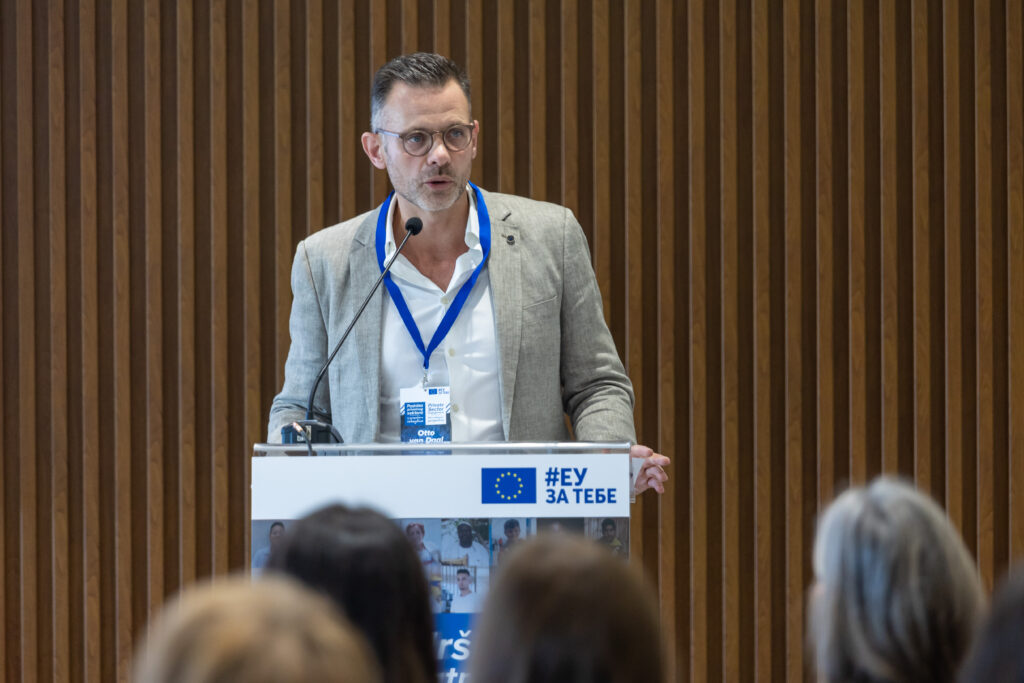 This article was produced within the project “EU Support to Migration Management: Fostering the Integration of Refugees and Migrants” implemented by UNHCR Serbia in partnership with IOM Serbia and SCRM with support of the European Union. The author of the article is solely responsible for content that does not necessarily reflect the offi cial views of the European Union.
This article was produced within the project “EU Support to Migration Management: Fostering the Integration of Refugees and Migrants” implemented by UNHCR Serbia in partnership with IOM Serbia and SCRM with support of the European Union. The author of the article is solely responsible for content that does not necessarily reflect the offi cial views of the European Union.